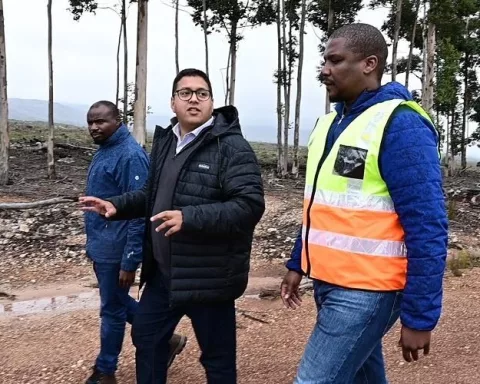Humanities and Social Sciences are crucial in shaping democratic values, encouraging inclusivity, and enhancing cultural comprehension. Despite the focus on STEM, these fields allow us to connect with different languages, cultures, and value systems to foster cross-cultural understanding and respect. Education should prioritize critical thinking skills for meaningful participation in a democratic society. Humanities and Social Sciences have a vital role in transforming societies, embracing diversity, and adapting to technological advancements to enhance human experiences. Supporting these fields at an institutional level enriches policy-making processes, offering options for reimagining the education landscape.
What is the relevance of Humanities and Social Sciences in modern society?
Despite the emphasis on STEM disciplines, it is crucial not to overlook the significance of Humanities and Social Sciences in shaping democratic values, promoting inclusivity, and enhancing cultural comprehension. These fields allow us to connect with various languages, cultures, and value systems and foster cross-cultural understanding and respect. Humanities and Social Sciences contribute to humanity’s betterment by nurturing cultural understanding and tackling societal challenges.
The Relevance of Humanities and Social Sciences in Modern Society
Despite the world’s increasing emphasis on STEM disciplines (Science, Technology, Engineering, and Mathematics), it is essential not to overlook the significance of Humanities and Social Sciences. These fields play a critical role in shaping democratic values, encouraging inclusivity, and enhancing cultural comprehension. This article will discuss the vital contributions Humanities and Social Sciences make to society and the overall improvement of human lives.
The prevailing neoliberal global order has driven a primary focus on economic liberalism. This dominant approach has led to the marginalization of various perspectives and the undervaluation of Humanities and Social Sciences. While STEM subjects are undoubtedly crucial, prioritizing them has resulted in an imbalanced view of the significance of culture and values in our lives.
The numerous challenges faced by humanity demand a comprehensive understanding and appreciation of the importance of culture and values. Humanities and Social Sciences allow us to connect with various languages, cultures, and value systems. This understanding leads to the development of successful programs and fosters cross-cultural understanding and respect.
Education as a Social Good and the Role of Humanities and Social Sciences
Martha Nussbaum, an American philosopher and social theorist, asserts in her influential book “Not for Profit” that education should be considered a “social good.” She maintains that while economic growth is vital, the primary goal of education should be to cultivate critical thinking skills essential for meaningful participation and contribution to a society’s democratic values.
In countries like South Africa, where the education system still contends with the apartheid and colonialism legacy, Humanities and Social Sciences play a pivotal role in the transformation process. These disciplines provide necessary critical thinking skills to address the immense challenges of the past and envision a more promising future. Additionally, they play a significant role in fostering inclusive institutional cultures, embracing diversity, and providing insights on how a democratic society should function.
Humanities, Social Sciences, and creative arts have the potential to drive change by encouraging scholars in these fields to think through complex issues critically. However, these disciplines must also evolve and adapt to the technological advancements in today’s world.
Engaging with Technology and the Future of Humanities and Social Sciences
We currently live in a technology-driven era, with artificial intelligence becoming more and more prevalent. Humanities and Social Sciences must engage with these advancements to enhance human experiences without succumbing to machines’ dominance. For example, digitizing African languages would increase their presence in the public domain, attracting the attention of younger generations who spend a considerable amount of time on social media platforms.
The South African government acknowledges the essential role Humanities and Social Sciences play in shaping and reinforcing democratic values in post-apartheid South Africa. Established in 2013, the National Institute for Humanities and Social Sciences aims to promote and coordinate scholarship in these fields. Through various programs, the Institute seeks to contribute to the sustainability of scholarship and research in South Africa and the broader African continent.
Supporting Humanities and Social Sciences at an institutional level recognizes the vital conversations occurring in these disciplines within universities. Debates surrounding curriculum reform, decoloniality, and broader transformation enrich policy-making processes, offering options for reimagining the post-school education landscape.
In summary, Humanities and Social Sciences possess indisputable value in today’s world. By nurturing cultural understanding, promoting inclusivity, and tackling societal challenges, these disciplines contribute to humanity’s betterment. As we continue to navigate an increasingly technology-driven world, we must ensure that the human element remains at the forefront of our educational pursuits.
Why should education prioritize critical thinking skills?
Education should prioritize critical thinking skills because they are essential for meaningful participation and contribution to a society’s democratic values. Martha Nussbaum, an American philosopher and social theorist, argues that education should be considered a “social good” that cultivates critical thinking skills. These skills are necessary for addressing the challenges humanity faces and envisioning a more promising future.
How do Humanities and Social Sciences contribute to the transformation of societies?
Humanities and Social Sciences play a pivotal role in transforming societies by providing critical thinking skills to address past challenges and envision a more promising future. These disciplines also foster inclusive institutional cultures, embrace diversity, and provide insight into how a democratic society should function.
What role do Humanities and Social Sciences play in policy-making processes?
Supporting Humanities and Social Sciences at an institutional level enriches policy-making processes by offering options for reimagining the post-school education landscape. Debates surrounding curriculum reform, decoloniality, and broader transformation provide vital conversations that universities can leverage to shape policy.
How can Humanities and Social Sciences adapt to technological advancements?
Humanities and Social Sciences must engage with technological advancements to enhance human experiences without succumbing to machines’ dominance. Digitizing African languages is one way to increase their presence in the public domain and attract the attention of younger generations who spend a considerable amount of time on social media platforms.
What is the significance of cross-cultural understanding and respect?
Cross-cultural understanding and respect are significant because they allow us to connect with different languages, cultures, and value systems. This understanding leads to the development of successful programs and fosters cross-cultural understanding and respect, which is essential for promoting inclusivity and enhancing cultural comprehension.
Why are Humanities and Social Sciences undervalued?
Humanities and Social Sciences are undervalued because of the prevailing neoliberal global order that has driven a primary focus on economic liberalism. This dominant approach has led to the marginalization of various perspectives and the undervaluation of Humanities and Social Sciences.
How do Humanities and Social Sciences contribute to humanity’s betterment?
Humanities and Social Sciences contribute to humanity’s betterment by nurturing cultural understanding, promoting inclusivity, and tackling societal challenges. These fields possess indisputable value in today’s world and must be supported at an institutional level.
What is the National Institute for Humanities and Social Sciences?
The National Institute for Humanities and Social Sciences is an organization established in 2013 in South Africa to promote and coordinate scholarship in these fields. Through various programs, the Institute seeks to contribute to the sustainability of scholarship and research in South Africa and the broader African continent.












